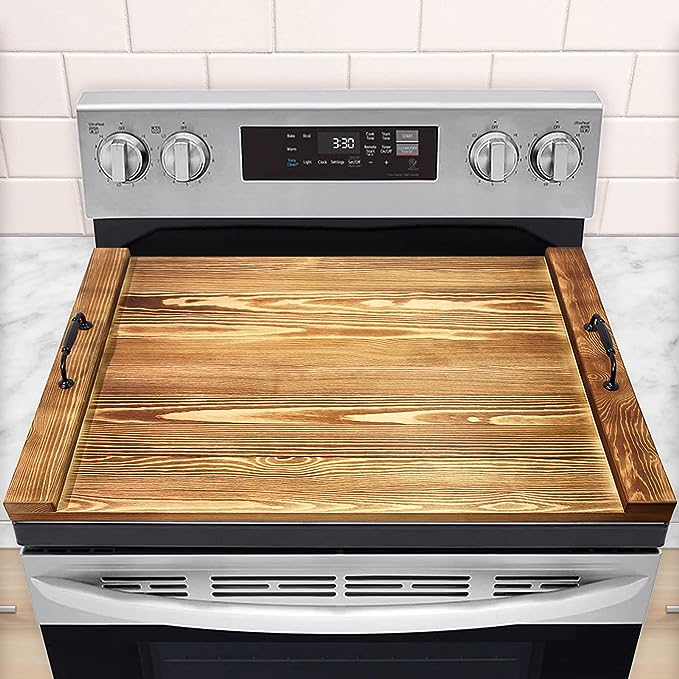A stove cover is an essential accessory for any kitchen. It not only protects your stove from dust and scratches but also provides additional countertop space when not in use. When it comes to choosing the right stove cover, there are several materials available in the market. Each material has its own set of pros and cons. In this article, we will discuss four popular stove cover materials and their advantages and disadvantages.

Solid Wood:
Solid wood covers are a classic choice for stove covers. They offer a timeless and natural look that can complement any kitchen decor. One of the biggest advantages of solid wood covers is their durability. They can withstand daily wear and tear and are less likely to get damaged easily. Additionally, solid wood covers are heat resistant, making them ideal for a stove cover. However, it is important to note that solid wood covers require regular maintenance. They need to be cleaned and treated with oil or wax to maintain their appearance and prevent them from drying out or cracking.
Stainless Steel:
Stainless steel covers have gained popularity in recent years due to their sleek and modern appearance. They offer a clean and sophisticated look to your kitchen. One of the major advantages of stainless steel covers is their durability. They are resistant to heat, stains, and scratches, making them a long-lasting option. Stainless steel covers are also easy to clean and maintain. However, they can be prone to fingerprints and smudges, requiring frequent wiping to keep them looking pristine. Additionally, stainless steel covers may be more expensive compared to other materials, which can be a drawback for budget-conscious buyers.
Glass:
Glass covers are a stylish and contemporary choice for stove covers. They offer a sleek and elegant look to your kitchen. One of the main advantages of glass covers is their transparency. They allow you to see the stove’s surface even when it is covered, making it easier to monitor the stovetop without lifting the cover. Glass covers are also easy to clean, as they can be wiped down with a damp cloth. However, glass covers can be fragile and prone to breakage if not handled with care. They may also require more frequent cleaning to maintain their pristine appearance, as they can show fingerprints and smudges easily.
Granite:
Granite covers are a popular choice for those looking for a luxurious and high-end option. They offer a unique and natural look to your kitchen. One of the major advantages of granite covers is their heat resistance. They provide excellent protection against heat, making them ideal for stove covers. Granite covers are also highly durable and resistant to scratches and stains. Additionally, granite covers are easy to clean and maintain, requiring minimal effort. However, it is important to note that granite covers can be heavy and may require professional installation. They can also be more expensive compared to other materials, which may not be suitable for all budgets.
In conclusion, choosing the right stove cover material is essential to ensure both functionality and aesthetics in your kitchen. Solid wood covers offer durability and a timeless look, while stainless steel covers provide a sleek and modern appearance. Glass covers offer transparency and contemporary style, while granite covers bring luxury and heat resistance to the table. Consider your personal preferences, budget, and maintenance requirements before making a decision. Ultimately, the perfect stove cover material will enhance the overall look of your kitchen and provide long-lasting protection for your stove.









